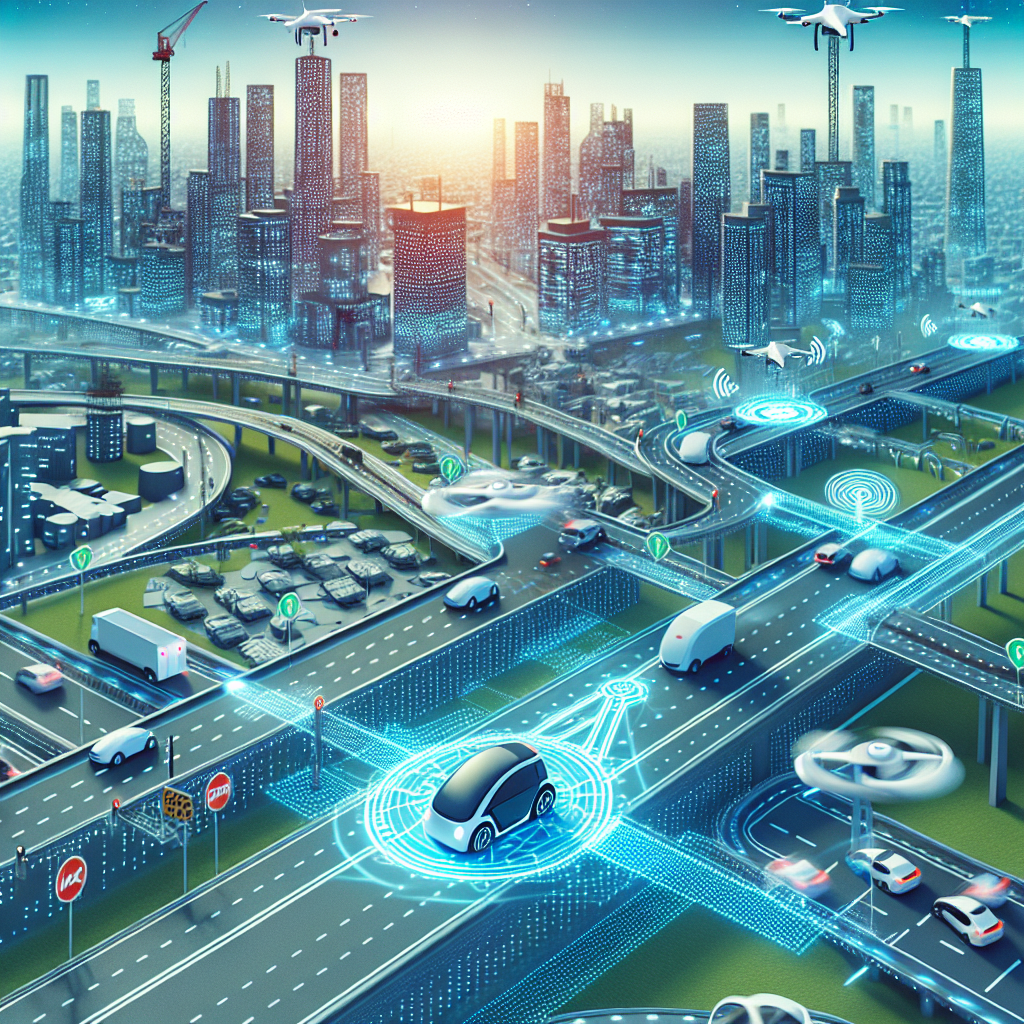Artificial Intelligence (AI) has been making significant advancements in various industries, and one area where it is proving to be particularly beneficial is transportation. AI deployment in transportation is revolutionizing the way routes are optimized, leading to more efficient and cost-effective transportation systems. In this article, we will explore how AI is enhancing route optimization in transportation and the benefits it brings to the industry.
Route optimization is a critical aspect of transportation management, as it directly impacts the efficiency and cost-effectiveness of transportation operations. Traditionally, route optimization has been a time-consuming and complex process that often involves manual planning and decision-making. However, with the advent of AI technologies, transportation companies now have access to powerful tools that can analyze vast amounts of data and generate optimized routes in real-time.
One of the key ways in which AI is enhancing route optimization in transportation is by leveraging machine learning algorithms to analyze historical data and predict future traffic patterns. By analyzing data such as traffic volume, road conditions, weather forecasts, and historical traffic patterns, AI algorithms can generate optimized routes that take into account various factors that may impact the efficiency of transportation operations. This allows transportation companies to proactively adjust their routes to avoid congestion, reduce travel times, and optimize fuel consumption.
Another way in which AI is enhancing route optimization in transportation is through the use of predictive analytics. By analyzing real-time data from sensors, GPS devices, and other sources, AI algorithms can predict potential disruptions in the transportation network and recommend alternative routes to avoid delays. This proactive approach to route optimization helps transportation companies minimize disruptions, improve on-time delivery rates, and enhance overall customer satisfaction.
AI deployment in transportation is also enabling the development of dynamic routing systems that can adapt to changing conditions in real-time. By continuously analyzing data from various sources, such as traffic cameras, weather sensors, and GPS devices, AI algorithms can dynamically adjust routes to account for unexpected events, such as accidents, road closures, or inclement weather. This flexibility allows transportation companies to respond quickly to changing conditions and optimize their routes to minimize disruptions and improve overall efficiency.
In addition to enhancing route optimization, AI deployment in transportation is also leading to the development of autonomous vehicles that can navigate routes without human intervention. Autonomous vehicles rely on AI algorithms to analyze sensor data and make real-time decisions about navigation, speed, and route optimization. By leveraging AI technologies, autonomous vehicles can safely and efficiently navigate complex transportation networks, reduce the risk of accidents, and optimize fuel consumption.
Overall, AI deployment in transportation is transforming the way routes are optimized, leading to more efficient, cost-effective, and sustainable transportation systems. By leveraging AI technologies, transportation companies can analyze vast amounts of data, predict future traffic patterns, proactively adjust routes, and develop dynamic routing systems that adapt to changing conditions in real-time. This enhanced route optimization not only improves the efficiency of transportation operations but also enhances customer satisfaction and reduces environmental impact.
FAQs:
Q: How does AI deployment in transportation benefit transportation companies?
A: AI deployment in transportation benefits transportation companies by enhancing route optimization, reducing travel times, minimizing disruptions, improving on-time delivery rates, and optimizing fuel consumption. AI technologies enable transportation companies to analyze vast amounts of data, predict future traffic patterns, proactively adjust routes, and develop dynamic routing systems that adapt to changing conditions in real-time.
Q: What are some of the key AI technologies used in route optimization in transportation?
A: Some of the key AI technologies used in route optimization in transportation include machine learning algorithms, predictive analytics, and autonomous vehicles. Machine learning algorithms analyze historical data and predict future traffic patterns, while predictive analytics analyze real-time data to predict potential disruptions and recommend alternative routes. Autonomous vehicles leverage AI algorithms to navigate routes without human intervention, optimizing navigation, speed, and route optimization.
Q: How does AI deployment in transportation impact customer satisfaction?
A: AI deployment in transportation impacts customer satisfaction by improving on-time delivery rates, reducing travel times, and minimizing disruptions. By optimizing routes, transportation companies can ensure that goods are delivered on time, leading to increased customer satisfaction. Additionally, AI technologies enable transportation companies to proactively adjust routes to avoid delays and disruptions, further enhancing customer satisfaction.
Q: What are some of the challenges associated with AI deployment in transportation?
A: Some of the challenges associated with AI deployment in transportation include data privacy concerns, regulatory hurdles, and the need for skilled AI professionals. Transportation companies must ensure that they comply with data privacy regulations when collecting and analyzing sensitive data. Additionally, regulatory hurdles may pose challenges for the deployment of autonomous vehicles. Finally, the shortage of skilled AI professionals may hinder the adoption of AI technologies in transportation.
In conclusion, AI deployment in transportation is revolutionizing route optimization and enhancing the efficiency, cost-effectiveness, and sustainability of transportation systems. By leveraging AI technologies, transportation companies can analyze data, predict traffic patterns, proactively adjust routes, and develop dynamic routing systems that adapt to changing conditions in real-time. This enhanced route optimization not only improves transportation operations but also enhances customer satisfaction and reduces environmental impact. As AI technologies continue to advance, the future of transportation looks promising, with AI playing a key role in shaping the transportation systems of tomorrow.

